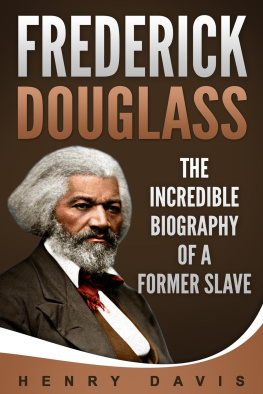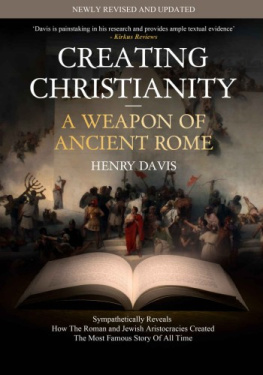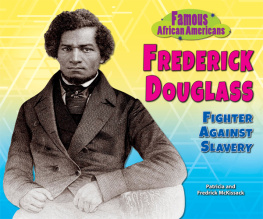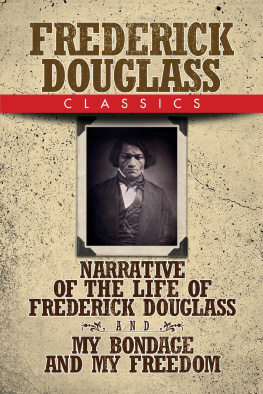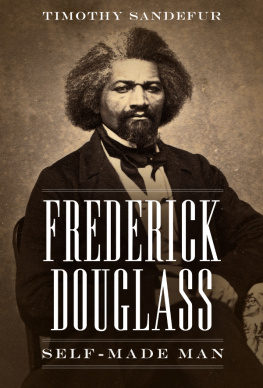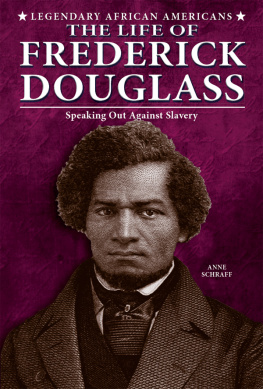Frederick Douglass
The Incredible Biography of a Former Slave
By Henry Davis
Copyright 2019 - All rights reserved.
The content contained within this book may not be reproduced, duplicated or transmitted without direct written permission from the author or the publisher.
Under no circumstances will any blame or legal responsibility be held against the publisher, or author, for any damages, reparation, or monetary loss due to the information contained within this book. Either directly or indirectly.
Legal Notice:
This book is copyright protected. This book is only for personal use. You cannot amend, distribute, sell, use, quote or paraphrase any part, or the content within this book, without the consent of the author or publisher.
Disclaimer Notice:
Please note the information contained within this document is for educational and entertainment purposes only. All effort has been executed to present accurate, up to date, and reliable, complete information. No warranties of any kind are declared or implied. Readers acknowledge that the author is not engaging in the rendering of legal, financial, medical or professional advice. The content within this book has been derived from various sources. Please consult a licensed professional before attempting any techniques outlined in this book.
By reading this document, the reader agrees that under no circumstances is the author responsible for any losses, direct or indirect, which are incurred as a result of the use of information contained within this document, including, but not limited to, errors, omissions, or inaccuracies.
Table of Contents
I t is difficult to hear and learn stories of oppression and slavery and accept that it is a part of the United States history. The life of a slave is one that must have been filled with confusion, anger, and disheartenment. It is a wonder how any found the strength or courage to stand up against the slaveholders or risk their lives escaping. Frederick Bailey, later to be better known as Frederick Douglass was one such slave.
He was born at a time when freedom for a slave was rarely heard of and there were many struggles even a free slave would endure. Slavery had been a part the United States history since 1619. Slaves were a cheaper alternative to European servants. African people were shipped over by the boatloads and were put to work. It would be almost 200 years before slavery would begin to be abolished in the states. While the northern territories called for an end to the slave system, those in the south viewed the slaves as a necessity.
It was around this time that a future leader would be born. Frederick Douglass would shape American history in a profound way. He would inspire a nation, he would have a lasting impact on countries across the sea, and his voice and words would leave a lasting impression as a reminder that freedom is a born right to all. Not only would Frederick go on to change the nation for black slaves, but he would also tirelessly fight for equal rights for all.
The start of his story may not differ from what many other slaves were born into. His treatment was no different than other black children his age but his perspective on his situation was different. Frederick never accepted his status of slave and through his entire life, he questioned and challenged those who would try to convince him that he was nothing more than a piece of property, of lesser value, or of no importance.
Every detail of Frederick's life had an impact on who he would become. To start in the middle or towards the end would mean neglecting the very reasons for why he became such an influential leader. It is only fitting that much time is spent on discussing the very early years of his life, of his life chained to a system he would eventually break free from. As you will learn, Fredericks life was not filled with mere accidents. Every significant event led him on the path he was intended to be on.
Chapter 1: Frederick Augustus Washington Bailey, 1818.
T he year was 1818 or 1817; at the time there were no official records kept when a child was born, especially those children born to slaves. Frederick Augustus Washington Bailey made his debut this year in Maryland near Talbot Country. He was born at the Holmes Hill Farm not far from the eastern shore of Maryland. The exact date is unknown as birthdays often connected with a season; whether it was planting or harvest season, cherry picking time, spring or fall. Later in life Frederick would claim February 14th to be the day of his birth due to the fact that his mother would often refer to him as her little valentine.
His mother's' name was Harriet Bailey, daughter of Betsy and Isaac Bailey. Though she was a slave, she was a rare educated slave. She had intelligence and was one of the few slaves, if not the only, who was able to read and write. Her beauty was also one to be envied even though she had a much darker complexion than others.
Fredericks mother was forced to return to work in the field before Frederick was even a year old. As Frederick grew older he would explain this separation as a means to hinder the development of the childs affection toward its mother and to bluntly destroy the natural affection of the mother for the child. This is the inevitable result (Douglass, 2012, p.51).
Harriet Bailey was hired out to a Mr. Stewart, to work in the cornfields that surrounded the Holmes Hill Farm. This was close to 12 miles away on a neighboring plantation. Occasionally she would walk the 12 miles to visit Frederick late in the evening and make her way back before sunrise to be in the fields to work the next morning. As a field hand, the penalty for not being present in the fields by sunrise was a whipping. With no rest when she made these visits they were few and far between. Frederick only saw his mother a handful of times and it was always in the evening, well after the sun had set.
He was placed in the care of his maternal grandmother, Betsy Bailey. It was common for slave children to be placed under the care of an older slave who could no longer work in the fields. Frederick lived in a little hut or cabin in the woods with his brother, sisters, cousins, and aunt, all of whom were under the care of his Grandmother Bailey.
His grandmother was an intelligent woman as well. Though she may not have been able to read or write she was able to think clearly about how to provide for all those in her care. She knew that the small food allotment she was given would only stretch so far and that she needed to use the earth around her small cabin to provide more food. She was known to be a great fisher and farmer, being able to weave nets that she would also supply to neighboring towns. She would often spend an entire day fishing for herring and shad and in the springtime was sure to plant sweet potatoes that would provide a bountiful crop that would feed all the children. She was often called upon to help start the crops around the neighborhood. When harvesting time came about she was sure to think ahead once again and set aside the best seeds to plant for the next season.
Next page
